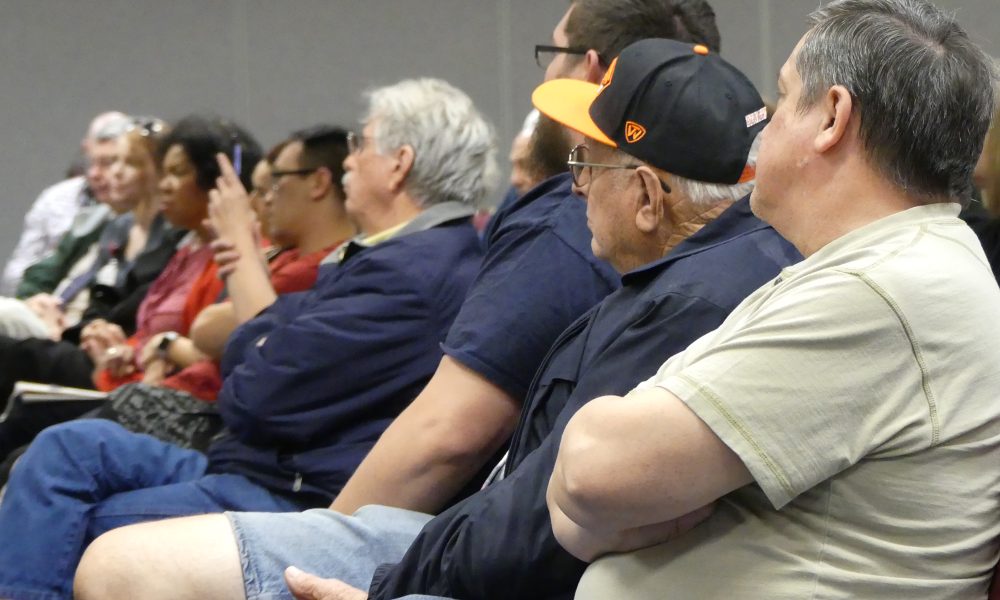
Mention “sales tax” around here and people pay attention. The looming vote on Ontario’s proposed tax is going to be hotly debated in the coming days. Local folks, though, recently showed their interest in learning before arguing, and that should continue.
To the surprise of many, a healthy crowd turned out recently for the Town Hall on the sales tax. More than 140 people sat still for what was in essence a tutorial in government spending. A couple of thousand took a peek as the discussion was streamed live online. The Malheur Enterprise conducted the Town Hall and organized the broadcast, not knowing what to expect. Count us among the surprised.
Too often these days, you hear that citizens just don’t want to know the facts. We hear the country is divided, that people will rely on their own sources of information, and that those sources are of doubtful veracity. Perhaps that’s true in some regards, but it’s certainly not evident in local politics.
Those attending the Town Hall were attentive. They learned how the Ontario city budget works, why city leaders are after a sales tax, and even listened during what can be a mind-numbing topic – the state retirement system.
And then came questions – from the audience at Four Rivers Cultural Center, from earlier messages from readers, and from the online watchers. For the most part, the questions were thoughtful and specific. The questions weren’t the snarky prods you sometimes see at political events. People were genuinely interested in information, even if their own bias for or against the sales tax was evident in the framing. Not all the questions were asked because of limited time and audience patience.
Up in front of the room, with no place to hide, sat Ontario Mayor Ron Verini and City Manager Adam Brown. They took hard questions, and hung in there when pressed to be more forthcoming. The audience could make its own judgment about the information they heard and whether questions were fully answered. But the mayor and city manager deserve credit for volunteering to stand before the community with no limitation on what they could be asked.
They were effective in one way. They addressed some persistent misconceptions. The city, they said, wouldn’t be able to at will increase the 1 percent sales tax. The fear of uncontrolled increases is prevalent. The city has before voters a measure that would lock in the sales tax, with no change allowed without a public vote. They also talked about the complexity of city budgeting, noting certain types of income can be spent only on certain types of expenses. Street money, for instance, has to be used on streets. It can’t be used to hire police officers.
The Town Hall was missing a key ingredient – the sales tax opponents. They declined to participate and take questions. In a way, that’s understandable. The sales tax is so hated in Oregon that the opponents likely thought their work was already done. But it would have been good for citizens – and voters – to know what other concerns opponents have, to know their thoughts for what city government should and shouldn’t be doing in Ontario. That sort of debate could have greatly benefitted citizens who are weighing whether to tax themselves to better their community or decide enough is enough.
We’re still a couple of weeks away from ballots going out. Ontario citizens who didn’t get their questions answered at the Town Hall have other chances. Verini has said he’d talk to anyone, take anyone’s call, to answer. The choice a citizen makes, of course, will depend on personal circumstances and politics. The best choice, regardless of “yes” or “no” on the ballot, is one rooted in good information. Whatever the outcome on the tax measure, the community gains by having a more engaged citizenry, leaning more on fact than fiction to make its judgment.




